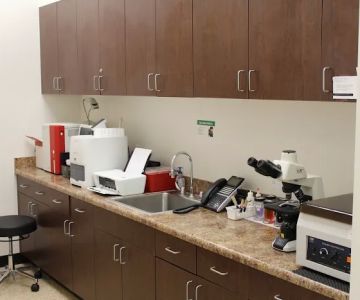What Education is Needed for a Veterinarian?
Becoming a veterinarian is a dream career for many animal lovers. If you’re someone who is passionate about animals and looking to pursue a career in animal healthcare, you might wonder, “What education is needed to become a veterinarian?” Well, let me tell you from my own research and experience, the journey to becoming a veterinarian requires dedication, commitment, and several years of education.
1. The Pre-Veterinary Education
The path to becoming a veterinarian typically begins with undergraduate studies. I realized early on that a solid foundation in science is essential for any aspiring veterinarian. Most veterinary schools require applicants to have a bachelor’s degree, with coursework in subjects like biology, chemistry, physics, and animal sciences. These courses provide the necessary knowledge for understanding the complex biology of animals.
1.1 What Degree Should You Pursue?
While there isn’t a specific undergraduate degree required, I found that many pre-veterinary students choose to major in fields like biology, animal science, or chemistry. These majors align with the core subjects taught in veterinary school. However, some students, like myself, choose other majors that offer a strong science background. A solid GPA and extracurricular activities related to animals, such as volunteering at animal shelters or working with veterinarians, can strengthen your application to veterinary school.
2. Applying to Veterinary School
Once you’ve completed your undergraduate education, the next step is applying to veterinary school. The process can be competitive, and as I found out, gaining admission to veterinary school can take time and effort. The American Veterinary Medical Association (AVMA) accredits 30 veterinary schools in the U.S., and each school has its specific requirements, including a high GPA, clinical experience, and letters of recommendation.
2.1 Entrance Exams and Requirements
For those of us preparing to apply, one of the hurdles is the Graduate Record Examinations (GRE), which some schools require. As I learned, the GRE assesses your verbal reasoning, quantitative reasoning, and analytical writing skills. Not all veterinary schools require the GRE, but it’s important to check with your chosen schools to confirm their requirements. Additionally, gaining experience working with animals—whether through internships, volunteer work, or employment—helps boost your application.
3. Completing Veterinary School: What to Expect
Veterinary school itself is an intense and rewarding experience. I was amazed by how much there is to learn. Most veterinary programs span four years and consist of both classroom-based learning and hands-on clinical training. During the first few years, students study basic veterinary sciences, including anatomy, pharmacology, pathology, and microbiology. The goal is to provide a strong foundation in animal biology and medicine.
3.1 Clinical Experience and Internships
What I found most exciting about veterinary school was the opportunity to gain practical experience. The clinical training component typically begins in the third year, where students rotate through various specialty clinics such as surgery, dentistry, and emergency medicine. These rotations allowed me to get a feel for different aspects of veterinary medicine and helped me decide which area of practice I might be interested in pursuing long-term.
4. The Licensing Process
After completing veterinary school, the next step in the journey is becoming licensed to practice. In the U.S., veterinarians must pass the North American Veterinary Licensing Examination (NAVLE), which tests their knowledge in both clinical and medical aspects of veterinary practice. Additionally, depending on the state you plan to work in, you may need to fulfill other state-specific requirements.
4.1 Continuing Education
Even after becoming licensed, I discovered that veterinarians are required to complete continuing education (CE) to stay current with advances in veterinary medicine. This means that throughout your career, you’ll need to regularly participate in workshops, courses, and other educational opportunities to keep your skills sharp. As a veterinarian, keeping up-to-date with the latest research and treatments is crucial to providing the best care for animals.
5. Specializing in Veterinary Medicine
Some veterinarians choose to specialize in a particular area of veterinary medicine, such as oncology, cardiology, or dermatology. Specializing usually requires additional education and training after completing veterinary school. I was intrigued to learn that this can involve completing a residency program, which can take several years. However, for those who are passionate about a particular area, specialization can be an exciting and rewarding path.
5.1 How to Become a Veterinary Specialist
Becoming a veterinary specialist involves intense study and clinical practice in a chosen area. After completing the basic veterinary education, students enter a residency program, which typically lasts three to four years. During this time, residents work closely with experienced specialists and gain in-depth knowledge of their chosen field. Afterward, they must pass board exams to become board-certified specialists.
6. The Job Outlook for Veterinarians
After learning all about the education and training required, I wanted to understand the job market for veterinarians. According to the U.S. Bureau of Labor Statistics, the demand for veterinarians is expected to grow in the coming years, particularly in areas like food safety, animal welfare, and veterinary research. Additionally, veterinarians who specialize in certain areas, such as surgery or internal medicine, can often expect higher salaries and increased job opportunities.
6.1 Job Satisfaction and Career Advancement
Veterinary medicine can be a highly rewarding career. Many veterinarians, including myself, find great satisfaction in helping animals and making a positive impact on their health and well-being. Additionally, career advancement opportunities are available for veterinarians who pursue specialization or take on leadership roles in practice management, teaching, or research.











